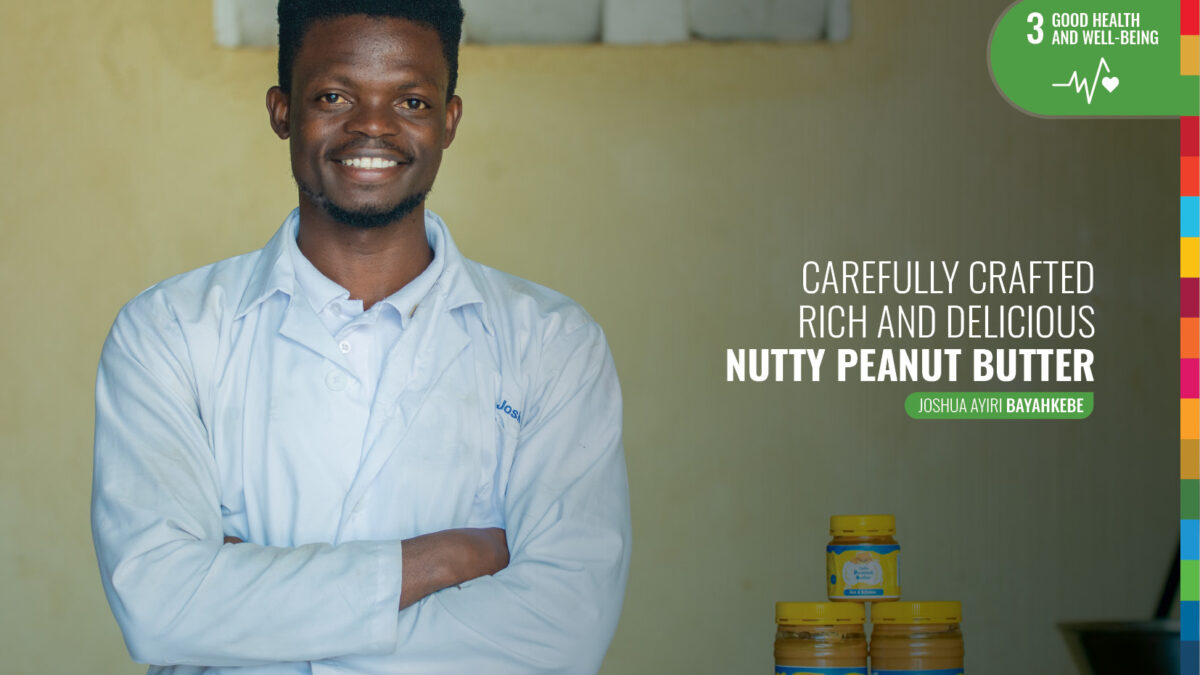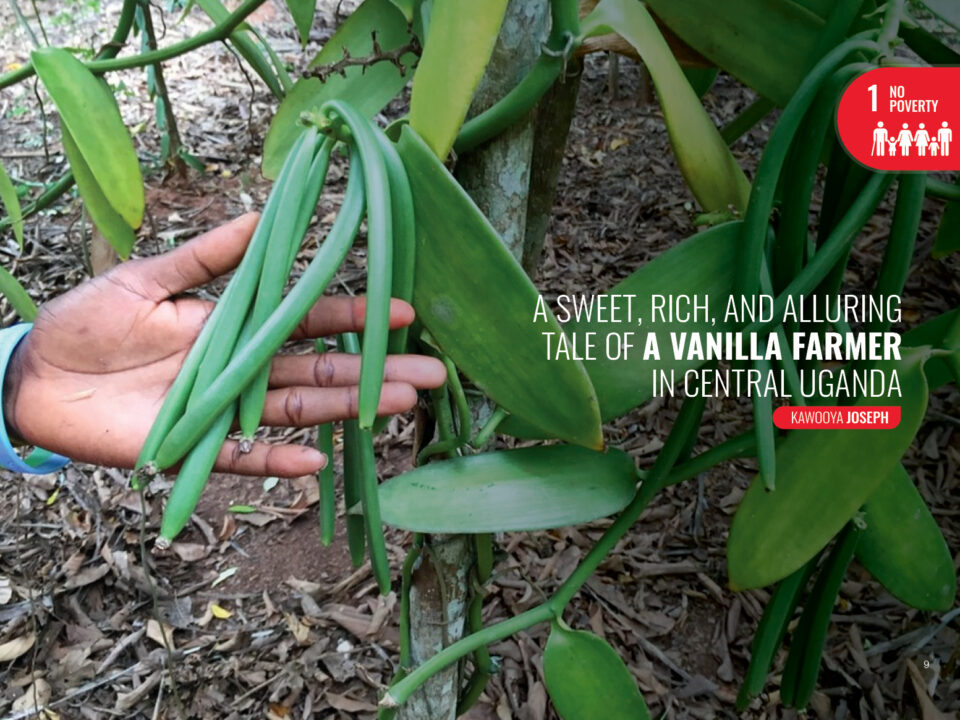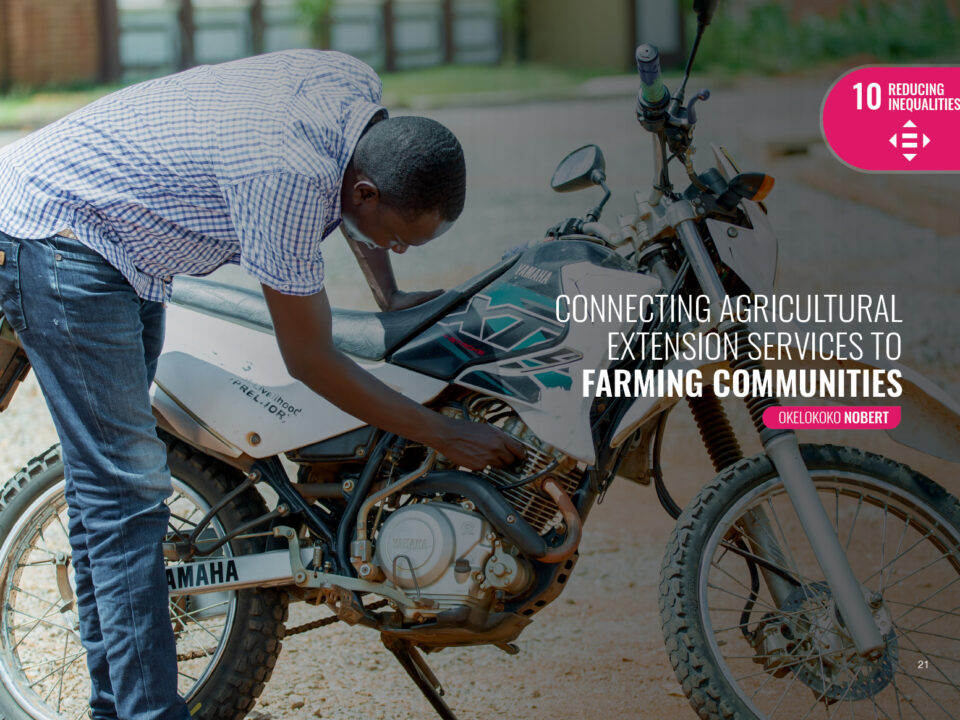Carefully Crafted Rich and Delicious Nutty Peanut Butter
Joshua Ayiri Bayahkebe, a Nigerian Agri-entrepreneur known as “Oga” by the people of Gulu City, is working to improve the quality of peanut butter consumed in Northern Uganda.
Working with farming communities and youth, Ayiri is producing “Gulu Peanut Butter,” a rich and delicious groundnut paste that complements meal times at family tables in surrounding communities.
Groundnuts are a low-cost protein source grown by African farmers and widely consumed in Uganda’s northern region. Traditionally, groundnut paste is used in soups, stews, and sauces. Because of its nutritional benefits and proven ability to combat malnutrition, many urban communities have increased their consumption of groundnut paste at breakfast as a spread on bread and added to vegetables and smoothies.
Groundnut paste, also known as “odi” is a much-needed supplement to the diets of many African families. Production of high-quality groundnut paste remains a challenge, especially given volatile market prices, seed quality, and farmers’ poor post-harvest practices. Ayiri engages in seed quality control while working with farming communities in Gulu because it affects his final product. “Most of the time, when we talk about food security, we don’t talk about food quality,” Joshua says firmly but passionately.
Ayiri recalls attending a lecture at Gulu University where the tutor expressed concern about how iron filings from machines used in groundnut production affect the quality of paste and increase aflatoxins in food with their associated defects over time. This got him thinking about how he could improve the manufacturing process and promote safe consumption.
At the time, a friend approached him and asked him to assist in the quality assurance of the maize milling process, which provided the ideal opportunity for his cause to take off.
They began by purchasing a high-quality machine, and he hasn’t looked back since, producing some of the cleanest maize flour in Gulu and high-quality peanut butter with the assistance of a team of about six people.
Ayiri believes that his involvement with farming communities and the young people he employs has had an impact on their lives, ranging from on-farm skilling in post-harvest handling with farmers to quality food processes by the youth at his business. He takes pride in employing youth and market access to farmers’ produce.
“They have improved their skill set by learning good food processing practices and personal hygiene, which is required for them to present a health fitness certification monthly.” He acknowledges with a blissful smile.
Traveling from Nigeria to study and later work with local communities presented challenges. However, Ayiri is humbled by his experiences in Gulu, which he refers to as his “second home.”
He is confident that when he returns to Nigeria, his siblings will look up to him. Ayiri attributes his transformation to the TAGDev program, which taught him to “be the change you want to see.”
He encourages his peers to be resilient, to never give up, and to work hard. “Take your academics seriously, but also consider what you will do when you leave and no longer receive the stipend,” Joshua emphasizes. He hopes to continue his education in a field related to sustainability.




